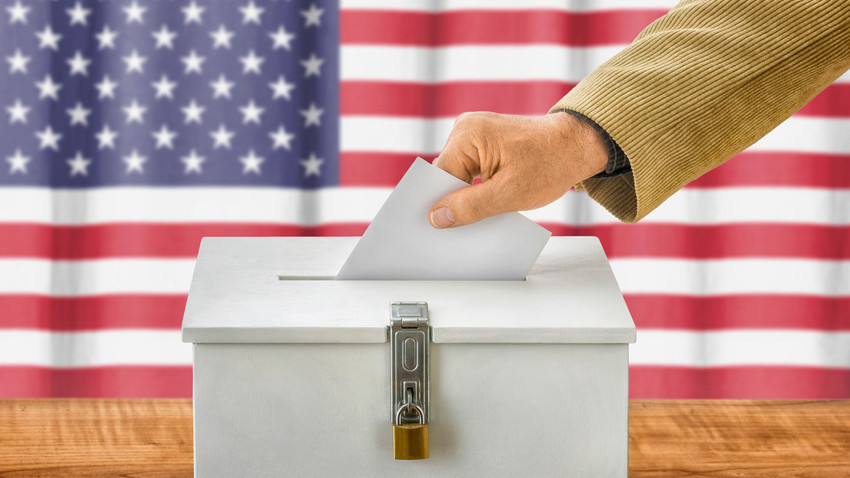
A Biblical Case for Why You Should Vote in This Election
Last Sabbath we considered the question, “If ‘Righteousness Exalts a Nation,’ What’s Going 2 Happen 2 the USA?” Even in a fractured nation with crumbling morality, God is still in control—He rules. We don’t have to fear what lies ahead for America. We can trust His omniscient wisdom. But for those who are considering not voting at all (as a way to avoid or protest a distasteful choice), let me share why I believe the Christian should vote in the 2016 presidential election:
1. It is a Christian’s duty to exercise civic responsibility.
Attempting to trap Jesus in this regard, the Pharisees accosted Him, “Is it lawful to pay taxes or not?” Recognizing their duplicity, Jesus asked someone for a coin (He was that poor) and held it up. “Whose image is on this coin?” Obviously the emperor’s, they replied. To which Jesus retorted, “Then give back to Caesar what is Caesar’s, and to God what is God’s” (Matthew 22:21). All citizens owe their government the taxes it assesses. Paul echoes the Master: “Let everyone be subject to the governing authorities, for there is no authority except that which God has established. . . . This is why you pay taxes, for the authorities are God’s servants” (Romans 13:1, 6). I.e., Christians are citizens of the land. Voting is the method in a democracy whereby citizens freely elect their leaders. Thus, voting is a civic responsibility a democracy requires in order to remain a democracy. Consider the millions on this planet who would give anything for the privilege of exercising the freedom to vote.
2. It is the responsibility of Christians to help shape their nation’s future.
Paul again: “I urge first of all that petitions, prayers, intercession and thanksgiving be made for all people—for kings and all those in authority . . .” (1 Timothy 2:1, 2). God Himself appeals: “‘If My people, who are called by My name, will humble themselves and pray and seek My face . . . then I will hear from heaven . . . and will heal their land’” (2 Chronicles 7:14). Prayer is a potent divine strategy to effect change in a nation and its leaders. Voting is a human strategy to also effect change. To the best of our ability while maintaining our moral values and spiritual commitments, we must exercise the ballot box, along with the prayer closet, to influence our homeland’s future.
3. But remember—the Bible supersedes the ballot.
When push comes to shove, as it does in some nations of earth today and as it will one day in this nation, the principle Peter declared to the authorities of his day is our guiding light, too: “We must obey God, rather than human beings” (Acts 5:29). Political correctness, popular persuasion, cultural majorities—none of that must influence the follower of Christ’s radical loyalty to the Master. If our conscientious stand is forbidden, we must make that stand irrespective of its cost.
4. Don’t forget—God is the ultimate king-maker (see Daniel 2:21-22).
His will will “be done on earth as it is in heaven” (Matthew 6:10). Note the use of the Hebrew divine passive (often in the Bible when a passive verb appears with no stated subject, the subject is understood to be God) in the critical apocalyptic prophecy of Revelation 13: “It was granted to him [by God] to make war . . . . it was granted to him [by God] to give breath to the image” (Revelation 13:7, 15). Who granted these geo-religio-political powers the authority and power to force their rule on the world? God, of course. Why? Because “in the word of God the curtain is drawn aside, and we behold, behind, above, and through all the play and counterplay of human interests and power and passions, the agencies of the all-merciful One, silently, patiently working out the counsels of His own will” (Education 173). All political power and authority are borrowed from the ultimate King of kings and Lord of lords.
5. No matter how this election fares, remember how the story ends.
"In the time of those kings, the God of heaven will set up a kingdom that will never be destroyed, nor will it be left to another people. It will crush all those kingdoms and bring them to an end, but it will itself endure forever” (Daniel 2:44). God rules—God wins. In the end Love triumphs.
Who has not thrilled to the Hallelujah chorus of Handel’s Messiah? “And I heard as it were the voice of a great multitude, and as the voice of many waters, and as the voice of mighty thunderings, saying, Halleluia: for the Lord God omnipotent reigneth” (Revelation 19:6). But until those Hallelujah’s are sung (on a day sooner perhaps than we once thought), we the citizens of the great King have the opportunity to exercise our privilege as citizens of this land. May God rule and overrule on Tuesday . . . until we hear the Hallelujahs in eternity.